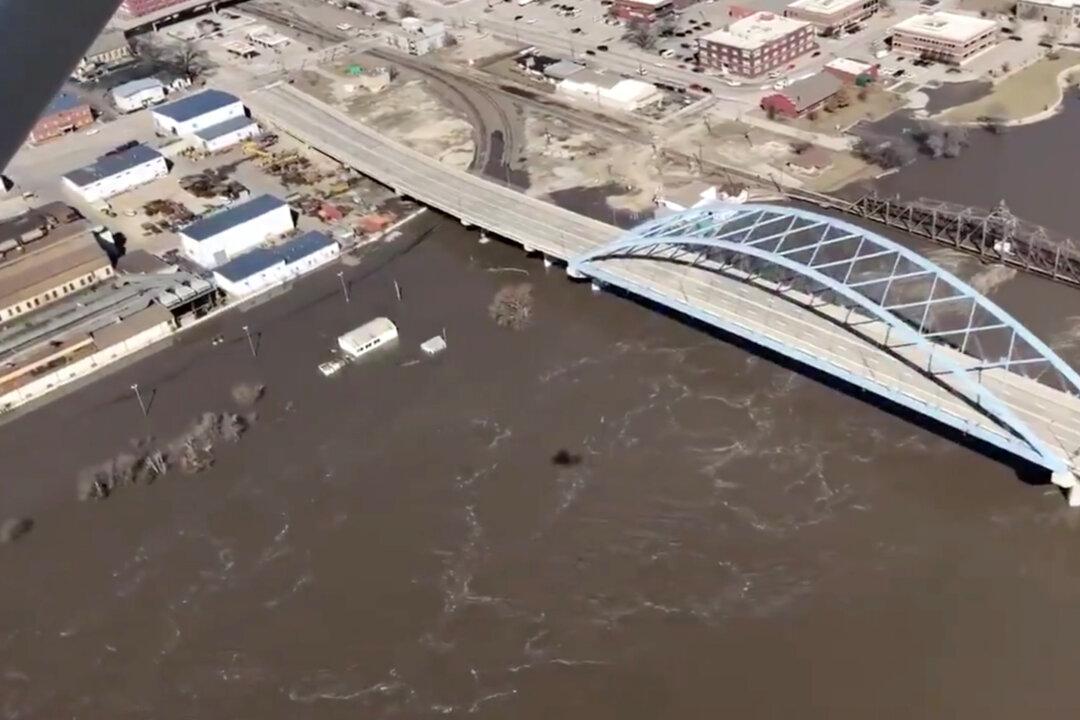KANSAS CITY, Mo.—Record flooding along the Missouri River has impaired treatment of drinking supplies in Kansas City, raising health risks for infants, the elderly and others with compromised immune systems, the municipal water service warned on March 23.
The public health advisory came as utility crews struggled to replace broken pumps at a wastewater treatment plant submerged by floodwater about 30 miles upstream in Leavenworth, Kansas, a historic town of 35,000 on the river’s west bank.





